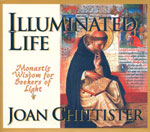Thoughts on Labor Day
One of the most demanding, but often overlooked, dimensions of the creation story is that when creation was finished, it wasn’t really  finished at all. Instead, God committed the rest of the process to us. What humans do on this earth either continues creation or obstructs it. It all depends on the way we look at life, the way we see our role in the ongoing creation of the world.
finished at all. Instead, God committed the rest of the process to us. What humans do on this earth either continues creation or obstructs it. It all depends on the way we look at life, the way we see our role in the ongoing creation of the world.
Work is our contribution to creation. It relates us to the rest of the world. It fulfills our responsibility to the future. God left us a world intact, a world with enough for everyone. The contemplative question of the time is what kind of world we are leaving to those who come after us. The contemplative sets out to shape the world in the image of God; to bring the Glory of God into the stuff of the moment, the character of the little piece of the planet for which we are responsible.
The ideal state, the contemplative knows, is not to avoid work. The first thing Genesis requires of Adam and Eve is that they “till the garden and keep it.” They are, then, commanded to work long before they sin. Work is not, in Judeo-Christian tradition, punishment for sin. Work is the mark of the conscientiously human. We do not live to outgrow work. We live to work well, to work with purpose, to work with honesty and quality and artistry.
The contemplative is overcome by the notion of “tilling the garden and keeping it.” Work does not distract us from God. It brings the reign of God closer than it was before we came. Work doesn’t take us away from God. It continues the work of God through us. Work is the priesthood of the human race. It turns the ordinary into the grandeur of God.
—from Illuminated Life (Orbis) by Joan Chittister
